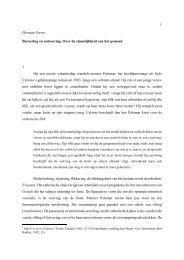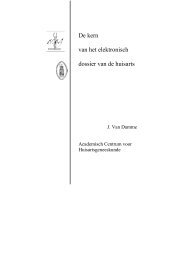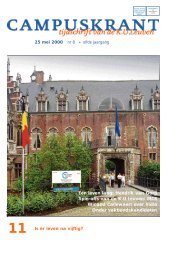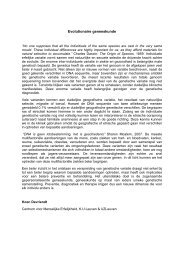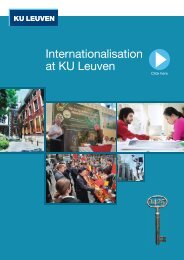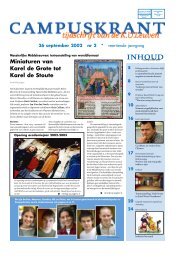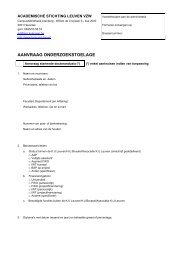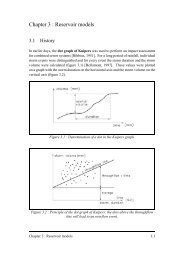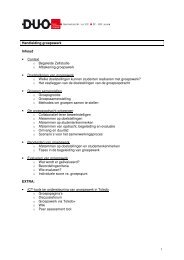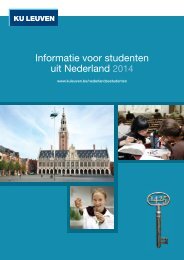EQUALITY GUIdE - KU Leuven
EQUALITY GUIdE - KU Leuven
EQUALITY GUIdE - KU Leuven
Create successful ePaper yourself
Turn your PDF publications into a flip-book with our unique Google optimized e-Paper software.
250 Equality Guide<br />
women. The training tackled issues concerning gender-specific characteristics and<br />
thresholds. This information was important for creating support for the mentors’ engagement<br />
towards female academics in order not to get into a polemic concerning<br />
positive discrimination.<br />
As the mentors were selected by the steering committee on the basis of their qualities,<br />
the mentors were considered to have the skills needed to be good mentors. The evaluations<br />
did not question this, but it is important to pay attention to the skills needed to<br />
be a good mentor.<br />
3.5. Implementation and continuous support<br />
After the training, the mentees were asked to contact their mentors as soon as possible.<br />
Before that, the mentor and mentee had already had the introductory meeting. This<br />
conversation was aimed at confirming a mutual commitment to work as a duo and at<br />
laying the foundation for ‘rapport’.<br />
After the training they had their first meeting in which they were told to discuss the<br />
result of the training (their personal development plan) and to sign a contract. This<br />
contract underlined the formal aspect of the professional relationship, the development<br />
aim of the mentee and the ethical code. After this first assignment, the content of the<br />
mentoring relationship was not monitored any further. However, the mentors and<br />
mentees did get information about mentoring and conversation techniques.<br />
Mentoring schemes tell us that mentors and mentees do not need micro-managing.<br />
The relationship thrives on informality. However, they do need support and back-up. It<br />
is important they have someone who they can refer queries to ! a scheme coordinator<br />
who keeps an eye on each pair. The project coordinator, who could always be contacted<br />
for information and questions, asked the mentees to send a summary of the<br />
meetings. In practice, the mentees seemed to forget to send in summaries of the conversations<br />
with their mentor. An e-mail from the coordinator to remind them was however<br />
also an opportunity to keep in touch with the mentees and to get spontaneous<br />
reactions about the mentoring programme.<br />
Networking<br />
During the training, the mentees already mentioned they very much valued the networking<br />
part and they asked for opportunities to meet again to share experiences. On<br />
the other hand, the mentoring relationship is all about personal reflection and is strictly<br />
confidential. So it was a challenge to meet again with mentors and mentees, without<br />
talking about the content of the personal meetings. A meeting was planned in the<br />
scope of the formal conclusion of the mentoring scheme. (see CASE STUDY)



